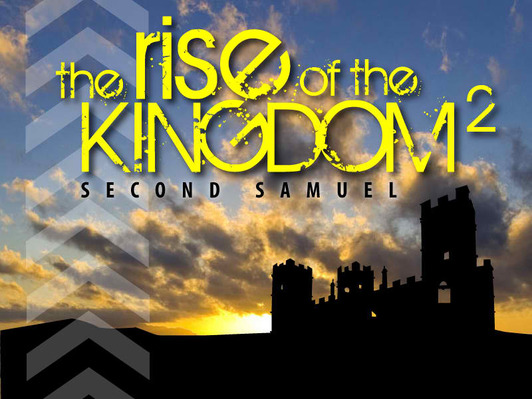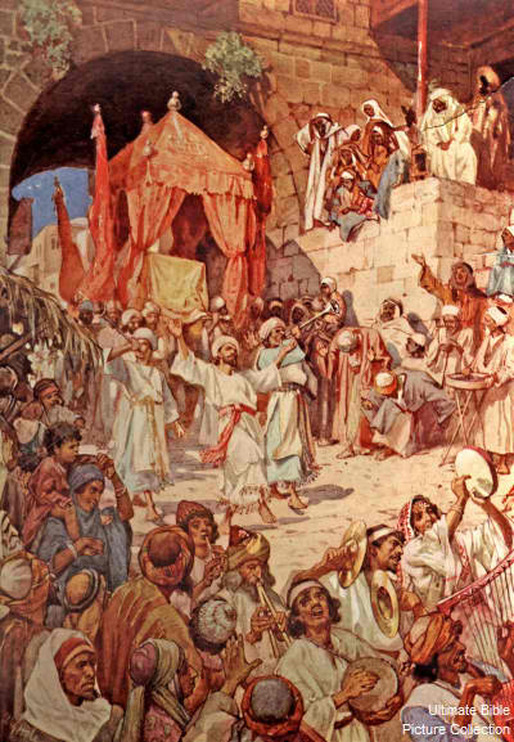The Book of 2 Samuel

2 Samuel depicts David as a true (though imperfect) representative of the ideal theocratic king. Under David's rule the Lord caused the nation to prosper and to defeat its enemies. In chapter 7, we read the Lord's promise that David's dynasty would endure forever and of the establishment of the Davidic covenant.
In chapters 1-10, we find that David becomes the king of Judah while the
Northern part of the nation (Israel) rejects God and chooses to go with the dynastic tradition by selecting Saul’s son Ish-Bosheth to rule. Ish-Bosheth eventually was executed and the northern tribes asked David to rule the entire nation of Israel. King David chooses to establish a new capital, Jerusalem, and through a tragic process, brings the Ark there.
In chapters 11-24, we observe the sinful side of King David during his
reign, and how it affected the nation of Israel. First, David commits adultery with a married woman named Bathsheba and she becomes pregnant. Afterward, he has her husband murdered in an attempt to repair things. The prophet Nathan confronts him and David repents and soon after the child dies. Bathsheba later gives birth to Solomon, who will be the next king of Israel. Absalom, David’s other son, plots a rebellious takeover and the nation approves. David flees for his life, yet ultimately raises enough troops and a strong backing to take back his seat and restore order; in the process, his rebellious son was killed.
In chapters 1-10, we find that David becomes the king of Judah while the
Northern part of the nation (Israel) rejects God and chooses to go with the dynastic tradition by selecting Saul’s son Ish-Bosheth to rule. Ish-Bosheth eventually was executed and the northern tribes asked David to rule the entire nation of Israel. King David chooses to establish a new capital, Jerusalem, and through a tragic process, brings the Ark there.
In chapters 11-24, we observe the sinful side of King David during his
reign, and how it affected the nation of Israel. First, David commits adultery with a married woman named Bathsheba and she becomes pregnant. Afterward, he has her husband murdered in an attempt to repair things. The prophet Nathan confronts him and David repents and soon after the child dies. Bathsheba later gives birth to Solomon, who will be the next king of Israel. Absalom, David’s other son, plots a rebellious takeover and the nation approves. David flees for his life, yet ultimately raises enough troops and a strong backing to take back his seat and restore order; in the process, his rebellious son was killed.

I. David Becomes King Over Judah (1:1-4:12)
II. David Becomes King Over All Israel (5:1-5)
III. David's Kingship in its Accomplishments and GLory (5:6-9:13)
IV. David's Kingship in its Weaknesses and Failures (10:1-20:26)
V. Final Reflections on David's Reign (21:1-24:25)
Foreshadowing of Jesus
The Lord Jesus Christ is seen primarily in two parts of 2 Samuel. First, the Davidic Covenant as outlined in 2 Samuel 7:16: “Your house and your kingdom will endure forever before me; your throne will be established forever” and reiterated in Luke 1:31-33 in the words of the angel who appeared to Mary to announce Jesus’ birth to her: “He will be great and will be called the Son of the Most High. The Lord God will give him the throne of his father David, and he will reign over the house of Jacob forever; his kingdom will never end." Christ is the fulfillment of the
Davidic Covenant; He is the Son of God in the line of David who will reign
forever.
Second, Jesus is seen in the song of David at the end of his life (2
Samuel 22:2-51). He sings of his rock, fortress and deliverer,
his refuge and savior. Jesus is our Rock (1 Corinthians 10:4; 1 Peter 2:7-9), the Deliverer of Israel (Romans 11:25-27), the fortress to whom we “have fled for refuge to lay hold upon the hope set before us” (Hebrews 6:18 ), and our only Savior (Luke 2:11; 2 Timothy 1:10).
continue to 1 Kings....